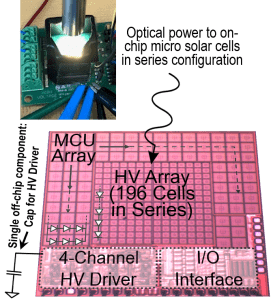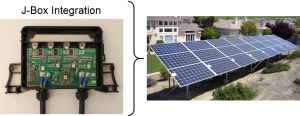Power electronics is an area of great need in many industry sectors from consumer electronics and mobile communications to renewable energy and electrified transportation. However it is an often overlooked area of study and is increasingly a bottleneck in the performance and cost of many systems. Power electronics is a surprisingly interdisciplinary field - it requires the knowledge and practice of analog and digital circuits (embedded system design), control theory, and signal processing. It also relies heavily on basic physics (E&M and semiconductor theory), material science, and a deep understanding of application requirements and the underlying modalities of energy generation, storage, distribution, and usage. The coming decades will be very exciting in power electronics. There are a number of transformational advances underway in active devices, passive components, and underlying electronics integration that will revolutionize the way circuits are designed, as well as their achievable size, cost, and performance.
Our research combines solid-state circuit design (integrated circuits), embedded systems, and power electronics to address the growing needs of a variety of applications.. We work on new directions in switched capacitor dc-dc converters that can be resonated, soft-charged, or otherwise hybridized with (very small) inductors. Our contributions in this area have included integrated circuit implementations that achieve very high power density by shrinking or integrating key passive components, and operating at very high frequencies. This has required innovations in the circuit architecture, operating modes, and key circuit blocks such as level shifters, gate drivers, analog instrumentation, control and regulation, and digital signal processing.
We have worked on many application-specific examples including photovoltaics , battery management, and micro-robotics. Theoretical work includes a systematic comparison of a variety of common SC architectures in terms of active and passive component utilization, and other considerations such as control and regulation, balancing flying capacitor voltages, the use of magnetic coupling and multiphase interleaving. Overall, we tend to approach electronics as a platform that can be used to address systemic limitations or application challenges, rather than as an end in itself.
Recent Work
This webinar from 2022 provides a good overview: Hybrid-Resonant Switched Capacitor Converters - Topologies, Trends, and Challenges (PMIC 2022)
Another general overview (2018 CICC review paper): Pathways to mm-scale DC-DC converters: Trends, opportunities, and limitations,
A generalized comparison of hybrid topologies: McLaughlin TPEL '21, and Kiani COMPEL '17

An integrated circuit design addressing fast regulation, flying capacitor balance, and startup: Xia JSSC '22,
A printed-circuit board design illustrating multiphase magnetic coupling: McLaughlin JESTPE '19

A fully-integrated 30MHz DC-DC converter with merged LC resonators: ISSCC '22

Optically-powered high-voltage drivers for MEMs and micro-robotics: JSSC '21; VLSI '20

Older Work: Integrated Circuits
[ISSCC '14]
|
[ISSCC '15] |
[JESTPE '18] |
[ISSCC '17] |
Older Work: theory and implementation
Theory, Control and Modelling
|
Hybrid Switched Capacitor Implementation
|
Older Work: Energy Applications
Photovoltaics
|
Battery Management
|
Other
- Multiphase interleaving and bypass capacitance allocation for resonant switched capacitor converters: [Schaef '15], [Rentmeister '17]
- Flying capacitor multilevel (FCML) converters - voltage balance on flying capacitors and multilevel operation: [Kesarwani '15], [Rentmeister '17]
- Optimized topology comparison - Which SC topology is best when operated in a resonant or soft-charging mode? [Kiani '17]
- Multilevel VR - vertically stacked digital voltage domains with efficient power management hardware to regulate voltage levels: [Schaef '16], [Schaef '15]








